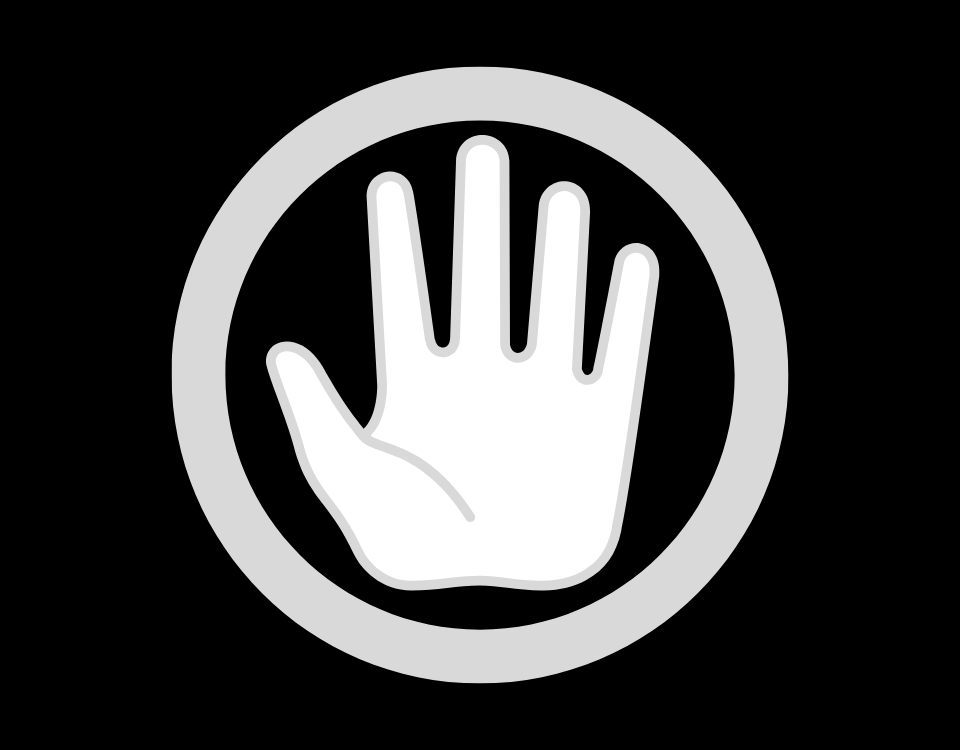A lot of people don’t know what high-ticket skills mean
They don't know how to learn new skills that’ll attract high paying clients or polish the ones they already have to become high-ticket.
That’s why in this article, I want to show you how to develop high-ticket skills or improve the one you already have.
If this is your first time on here, I’m glad to have you. I’m Dunni Goodman. I teach people how to gain control in four major areas of life: wealth, health, relationships, and peace of mind.
But you're about learn how to gain control and take responsibility when it comes to wealth.
That means anything related to having and growing your money.
If you want to make money, then you’ve got to:
- Learn what it takes to earn money,
- Go where the money flows, and
- Think about money the right way.
If you’ve read some of my other letters, you’d have heard me say that one of the best ways to go where money is, is by learning a high-ticket skill.
By this, I mean skills that attract high-paying clients.
It’s not wise to say you want to make serious money, but you’re doing things that only pay you peanuts.
Now, a lot of people think high-ticket skills are far-fetched. But let me give you real examples.
Each time you see people creating content online—talking about hair, fashion, makeup, tech, software, how to make money, and so on.
What you don’t know is this: anyone creating content consistently and growing a following has likely mastered a high-income skill.
Content creation itself is a high-income skill.
Why? Because platforms like YouTube pay creators. But not just that—many of these creators make thousands of dollars from:
- Brand deals
- Affiliate marketing
- Sponsorships
- Paid products
They’re not just playing online.
So for instance, when you see someone with thousands of subscribers on Youtube, don’t be shocked—they might already be cashing out big-time.
Now, some of you already have skills. But the problem is, those skills only pay you small. What I want to show you is how to polish that skill so it pays you more.
For example:
- If you're a salonist who makes hair, how can you turn that into a high-income skill?
- If you're a graphic designer, are you using that skill to design random flyers, or are you solving problems for brands that actually have money?
That’s the difference.
When you use your skill in a way that attracts big money—six or seven figures—that’s when it becomes a high-income skill.
So, if you’re serious about making money, this should be your daily mindset:
- Polish your current skill, or
- Learn a new one that gets you in front of people ready to pay high fees.
Let me break it down more.
When you see someone editing videos, writing scripts, building websites, or doing graphic design—not just for fun, but for companies that pay to grow their business—those are high-income skills.
If you can:
Help a brand make more money, or promote a business in a way that increases their visibility and credibility, then you’re holding a skill that can make you rich.
Brands want visibility. They want positioning. If you can help them achieve that, you can charge what you want.
Let’s say a CEO or expert wants to write a book to position themselves as a thought leader.
If you’ve trained yourself to ghostwrite that kind of book—one that sounds like them, fits their voice, and builds their reputation—then you can charge $5,000, even $10,000 per book.
Why?
Because that book might go on to:
- Attract new clients for them
- Generate millions of dollars in revenue, or
- Open up business opportunities.
That’s what makes ghostwriting a high-income skill.
It’s not enough to say “I’m a graphic designer” or “I design websites.” If your work doesn’t solve a real problem for someone with real money, then it won’t pay you well.
But once you can help people with money solve problems, and deliver results that bring in profit, you’ve entered the high-income zone.
So what’s next?
We’ll dive deep and look at:
Which high-income skill you should consider starting, or how to upgrade the one you already have so you can start earning six to seven figures with it.
Let’s get started.
#1: A High-Income Skill Solves a Clear, Profitable Problem
High-paying clients don’t pay for effort—they pay for results.
They have money and they’re looking for people who can solve their problems.
Your skill must help people or businesses that already have money. If it just “looks good” or takes time but doesn’t solve a real problem for paying clients, it’s not a high-income skill.
Let's me give some practical examples:
Example 1: Let's say you write emails. That’s not enough.
The question is, Can those emails bring in sales?
If one email can make a company thousands of dollars—you’re holding a high-income skill.
Example 2: If you edit YouTube videos for coaches or industry giants.
The question is, can those videos position them as top experts and grow their brand above competitors, that’s a high-income skill.
Example 3: Also when it comes to ghostwriting, it's not enough to just.
The question is, can the book sounds exactly like CEOs and brand experts and helps them attract business deals?
Can you charge $5,000 or even $10,000.
Why? Because they’ll make millions from the results of your work.
But if you’re on Fiverr charging $5 for a bookmark or a random flyer, that’s not a high-income skill.
You might already have the skill. What’s missing is the positioning and the focus on solving real, profitable problems for people with the money.
# 2: You’re Not Charging for Time—You’re Charging for Outcomes
High-income skills don’t get billed by the hour.
You’re not offering “time.” You’re offering transformation.
If your work brings results, you can charge based on the value it delivers—not how long it took.
Personal Example:
I once designed a website for a pastoral friend.
When I saw their plan, it was just a basic static site.
- I said, “No, this can be more.”
- I added product listings.
- I added blog content with the right keywords.
- I used copywriting skills to make it engaging.
- I positioned it to attract global visitors and sell.
That’s no longer just a website—it’s now a business asset.
Another person recently showed me a site they built with AI. It looked bland. It didn’t communicate anything or convert visitors.
Don’t just say:
“I spent 10 hours on this, so I’m charging $300.”
That’s not how high-ticket people think.
Say instead:
“This site can bring you $50,000 in new revenue. I’m charging $5,000 for the build.”
Clients pay more when you explain the result they’ll get—not how long it took you.
Let's explore more real-life examples:
- Instead of saying, “I’ll design 5 Instagram graphics,” say:
“I’ll create a campaign that grows your audience by 1,000 followers in 5 days.”
- Instead of saying, “I write blog posts,” say:
“I’ll write 4 articles that will rank your site on Google and bring you leads.”
- Instead of saying, “I do graphics,” say:
“I’ll run a social media campaign that drives traffic and conversions.”
Graphics? ArtificiaI Intelligence can do that now.
But strategy that delivers results? That’s rare. That’s valuable. That’s a high-income skill.
#3: The Skill Can Be Used Across Multiple Industries
A true high-ticket skill is not stuck in one place.
You can apply it in different industries and still bring results.
Let’s say you:
Write copy: That can work in real estate, health, finance, education—you name it.
Build websites: Same thing—you can design for churches, product brands, coaches, or e-commerce stores.
Create videos: That works for thought leaders, brands, ministries, tech startups, and more.
If your skill transfers easily from one high-paying industry to another, and still brings value—that’s a high-income skill.
#4: A High-Income Skill Has Room to Grow Across Industries
A high-income skill shouldn’t box you into just one kind of client or business.
If your skill only works in one space, you’ll soon run out of clients.
But if it works across different fields—like tech, coaching, fashion, real estate—you’ll never lack people to work with.
For example:
If someone says, “I only design websites for tech companies. I don’t do for fashion or real estate,”
That’s already too limiting.
You should be able to build websites that convert, no matter the industry.
That’s when it becomes a high-income skill.
Now, I’m not saying be a jack of all trades and master of none. No.
But your skill should be flexible.
For instance, I’ve worked for pastors for years:
- I publish their books.
- I do their graphic design.
- I ghostwrite for them.
As a pastor myself, I understand their message.
Sometimes, I don’t even need them to write anything—I just listen to their voice notes or messages, and I write something solid.
But I didn’t stop there.
If someone from tech or real estate comes to me today, I can still write their book, build their site, or help with branding.
Why?
Because I’ve learned how to adapt that skill across industries.
That’s the point.
That’s what makes it a high-income skill.
I can work with billionaires or big companies and charge accordingly.
Here are more examples:
Copywriting works for coaches, eCommerce stores, real estate agents.
Video editing works for YouTubers, course creators, business owners.
But if your skill is just about designing wedding programs, you’re stuck in a small corner.
How much will wedding couples really pay?
Except you take that same design skill and use it for brands, big launches, or high-budget events.
That’s how it becomes profitable.
So yes, be flexible.
Let your skill serve people across industries, especially the ones that pay well.
#5: A High-Income Skill Is What People Are Paying For Now
It’s not just about what you love.
People don’t pay for passion—they pay for solutions.
It’s okay to know your passion, but if people aren’t paying for it, then it won’t help you financially.
Let’s say you love baking.
That’s good. But are people currently paying for that?
If what they’re paying for now is small chops, wedding cakes, or full wedding planning packages,
Then you should think bigger:
- Stack your skills.
- Bundle your offers.
Maybe someone wants one person to handle everything—from cake, catering, to décor.
You can step in and say, “I do it all.”
That’s a high-income skill.
I know someone who started out decorating event halls.
But she didn’t stop there—she expanded into full event planning.
Now she’s planning weddings from A to Z:
- Decorations
- Food
- Cake
- Dress
- Makeup
She used to charge maybe ₦1-2 million just for décor.
Now, with skill stacking, she’s charging ₦5-7 million for the full service.
That’s what I’m talking about.
Don’t stick with what “looks fun” or what you “enjoy.”
Study the market.
Look for skills that are:
- In demand
- Not going out of trend
- Needed consistently across seasons
This is a digital era.
If you’re not building digital skills, you’re behind.
Let me use myself again as an example.
I started out as a traditional publisher:
People brought me handwritten manuscripts.
I’d process, format, and print them.
That was good for then.
But the world moved, and I had to move with it.
Now, I offer:
- Blog writing
- Website design
- Sales page creation
- Copy that sells books online
- Digital marketing for authors
That’s what people are paying for now.
A lot of authors are still stuck in the analog world.
They have no clue how to move online.
So I tell them, “Let me help you transition.”
They pay me $3,000, $4,000, even $5,000 because the value I bring in return is huge.
They’re not just paying for a book.
They’re paying for visibility, sales, impact.
How to Know What’s In-Demand Right Now
To figure out what people are paying for right now:
- Check job boards and freelance platforms
- Study influencer content
- See what people keep asking for in your industry
If nobody’s paying for your passion, it won’t help you financially.
Let’s say you love music—great.
But you should ask:
Are people paying for singing or are they paying for jingles, ads, hooks, or background vocals?
That’s what you should be building around.
We’re in the age of AI and automation.
So if you learn how to:
- Write AI-powered content
- Build websites with modern tools
- Use software for marketing, funnels, and sales.
You’ll always stay relevant.
In Conclusion
Be Passionate, But Be Profitable
Your passion is valid.
But if it’s not profitable yet, pivot.
Align your skill with what people need and pay for.
Here’s a checklist:
- Can it solve a clear, profitable problem?
- Does it deliver a result that people will happily pay for?
- Can it be used across different industries?
- Is it in demand right now?
- Can you charge based on outcome, not effort?
If your skill ticks those boxes, then you’re on your way to six and seven figures.
If you're determined to escape the rat race and build legacy wealth, I created a free masterclass just for you:
The Legacy Wealth Roadmap Masterclass
Inside, I’ll walk you through how to:
- Choose the right skill
- Practice with impact
- Package yourself to attract high-paying clients
- And turn that skill into income you can build a future on
If you're ready, you can click here to watch the free masterclass. See you there.



